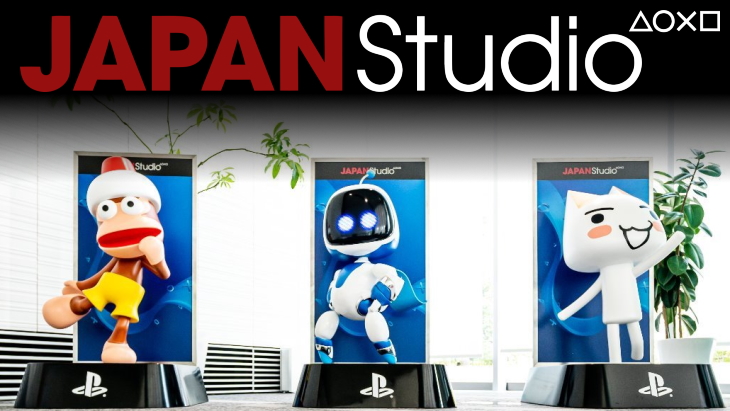
UPDATE:
Sony has provided an official statement (via IGN) to confirm the rumor/report that Sony Interactive Entertainment Japan Studio was “winding down” their original game development.
Here’s the statement:
In an effort to further strengthen business operations, SIE can confirm PlayStation Studios JAPAN Studio will be re-organized into a new organization on April 1. JAPAN Studio will be re-centered to Team ASOBI, the creative team behind Astro’s PLAYROOM, allowing the team to focus on a single vision and build on the popularity of Astro’s PLAYROOM.
In addition, the roles of external production, software localization, and IP management of JAPAN Studio titles will be concentrated within the global functions of PlayStation Studios.
ORIGINAL STORY:
Anonymous sources have claimed Sony Interactive Entertainment (SIE) are “winding down” original game development at Sony Japan Studio; and the “vast majority” of development staff have been let go.
VGC reports that according to multiple sources, this came following the annual contracts of staff not being renewed before the company’s next business year (April 1st).
Localization and business staff remain, with ASOBI Team (the developers behind the Astro Bot games) becoming a stand-alone studio within Sony Japan. While some have joined this new studio, others have joined Bokeh Game Studio; founded by Keiichiro Toyama (the creator of the Silent Hill, Siren, and the Gravity Rush series) after he left Sony Japan Studio in December 2020.
One person speaking to VGC suggested that the External Development Department; responsible for collaborated development on PlayStation titles by first-party studios, would continue.
The reason for the drastic restructuring is reportedly due to Sony Japan Studio not being profitable enough in recent years. The developer had desires to make games that appealed primarily to the Japanese market, hoping it would still have global appeal. Meanwhile, SIE wanted “global hits” akin to what its other first-party studios have produced.
Another person told VGC the studio was doomed more than a year ago, when then president Allan Becker left and was replaced by Astro Bot: Rescue Mission director Nicolas Doucet. Becker had allegedly left due to his frustration over the lack of hits produced by the studio.
One source claimed this was all part of SIE and PlayStation moving more power away from Japan, and towards its headquarters in San Mateo, California. Since moving there in 2016, the source claims it has been centralizing power by way of layoffs and restructuring in regional offices.
As aforementioned, the writing may have been on the wall with several high-profile developers leaving the studio. Previously, Demon’s Souls (2020) and Bloodborne producer Teruyuki Toriyama left the company, followed by Siren and Gravity Rush creator Keiichiro Toyama departing Sony alongside Sato Kazunobu and Junya Okura. Most recently, Bloodborne producer Masaaki Yamagiwa left.
Japan Studios is best known for Ape Escape, Gravity Rush, Knack; and assisting other developers on major PlayStation titles such as Bloodborne, Shadow of the Colossus, and Patapon.
The reason for this loss of faith may be born of restrictions on what developers can do, and a growing lack of faith in the Japanese market. In late December 2018, SIE Japan Asia President Atsushi Morita stated the then recent spate of censorship of anime-styled sexual content on PlayStation 4 games had been “to meet global standards.” This censorship was seemingly forced in Japan.
SIE frequently cites global and community standards as reasons for their censorship practices. This has led to Japanese developers to release on other platforms, or create different versions.
This was the case with D3’s “Breast-Expansion Dungeon RPG“ Omega Labyrinth Life, which was released uncensored on the Nintendo Switch at launch. A censored version for the PlayStation 4 titled Labyrinth Life (omitting the “Omega” which is stylized as a busty girl in the logo) was released also at a reduced price to reflect the cut content.
The “restrictions on expression and suppressed the release of titles for Japanese users” was also cited by an analyst for the Ace Research Institute; claiming that it is “definitive” PlayStation will fall in Japan. He also claimed SIE were not realizing the region’s potential.
Most recently, CyberConnect2’s president claimed SIE have policies against depicting dismemberment or missing limbs for Japanese developers. This may be born mostly of criticism and concern from people within Japan however, rather than additional complaints from overseas.
In addition, Bloomberg reported claims that PlayStation employees and developers were losing faith in Japan as a market. The anonymous employees claimed that the company had begun to focus more on the US, after the PlayStation 4 had been disappointing in Japan.
According to several employees of PlayStation Japan, this resulted in the Japanese office being (in Bloomberg’s words) “sidelined” when it came to planning the promotion of the PlayStation 5. Employees from Tokyo told Bloomberg they have been waiting for instructions.
SIE CEO Jim Ryan denied those and prior reports, insisting that the Japanese market is still important to them. It should be noted that Japanese fans were not happy with Sony’s decision to switch the X and O commands to the western standard, and two major PlayStation 5 livestreams premiering at 5 a.m. JST.